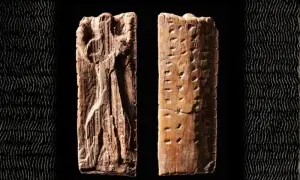Jafaa: Did the story of choice and autonomy really come through?
3 min readThe drama serial “Jafaa” recently ended on Hum TV. This serial has widened the intellectual and societal horizon for the viewers. It explored the complex dynamics of parental influence on marital choices. It particularly focused on the challenges faced by young adults as they strive to assert their right to select their life partners. The cast featured talented actors, including Sehar Khan, Mawra Hussain, Mohib Mirza, and Usman Mukhtar, who brought depth to this poignant narrative.
Through the character of Andaleeb, a college student, the show poignantly illustrates the societal pressures faced by young women regarding marriage and autonomy.
Despite her youth, Andaleeb’s desire to make her own choices is overshadowed by her family’s insistence on marrying her off, raising critical questions about the burdens and expectations placed on young females.
In parallel, we meet Numair, a dedicated oncologist portrayed by Usman Mukhtar, who is deeply committed to his profession.
His character embodies the tension between personal ambition and familial expectations, as his mother and sister are eager to see him married, despite his own reluctance and the revelation of his infertility.
This juxtaposition underscores the pressures on men to conform to traditional roles, even when their personal circumstances complicate such expectations.
Zara, another central character, is a successful gynecologist engaged to Assad, an orphan with undisclosed anger issues.
The marriage, arranged by their families, initially appears to be based on mutual consent, yet it quickly becomes apparent that hidden truths—particularly Assad’s psychological struggles—threaten the stability of their relationship.
Zara’s attempts to navigate this tumultuous situation reveal the dangers of ignoring red flags, as her independence does not shield her from the consequences of Assad’s abusive behavior.
The series effectively portrays the plight of all four characters—Zara, Assad, Numair, and Andaleeb—as they grapple with the weight of family expectations and the consequences of forced marriages.
Zara’s situation is particularly troubling; despite her education and professional success, she fails to recognize the signs of Assad’s mental illness until it manifests in violence.
This oversight highlights a concerning reality: even empowered individuals can find themselves trapped in toxic relationships due to societal pressures and inadequate support systems.
Numair’s relationship with Andaleeb is marked by a stark contrast; he provides her with the space to make her own decisions, even allowing her the option of divorce if she wish to return to her previous love, Moiz.
However, the portrayal of Numair’s infertility and the resulting DNA test for their child, Anadil, feels unnecessary and detracts from the narrative, complicating an already intricate storyline.
The drama ultimately emphasizes that effective communication is essential for successful relationships. Both Numair and Andaleeb fail to express their true feelings and circumstances, leading to misunderstandings that exacerbate their challenges.
The series advocates for transparency, particularly regarding medical conditions, as secrets can have far-reaching consequences in lifelong commitments.
In conclusion, “Jafaa” raises significant issues about the societal norms that dictate marriage and the importance of individual choice.
However, the show could have benefitted from a more concise conclusion.
The final episodes, which depict Andaleeb’s crises and her return home to find Numair being considered for a second marriage to Zara, feel like unnecessary prolongations of the narrative.
This dramatic twist also detracts from the story’s core message about autonomy and choice, leaving viewers yearning for a resolution that honors the characters’ journeys toward self-discovery and empowerment.
For the latest news, follow us on Twitter @Aaj_Urdu. We are also on Facebook, Instagram and YouTube.

























Comments are closed on this story.